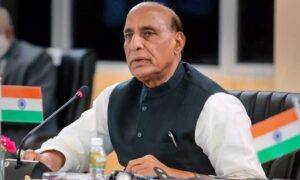The Waqf Amendment Bill, introduced in the Lok Sabha, has ignited a fierce debate among lawmakers, religious leaders, and members of the public. The bill aims to amend the Waqf Act of 1995, which some argue has been misused by the Waqf Board to usurp property. Supporters of the bill, including the BJP, argue that it is necessary to prevent the Waqf Board from acting like a land mafia and to protect the rights of Hindus. However, critics, including members of the opposition and Muslim community leaders, claim that the bill is unconstitutional and targets the Muslim community.
The bill’s passage in the Rajya Sabha is uncertain due to the lack of a majority for the ruling NDA coalition. The bill has been referred to a Joint Parliamentary Committee for further scrutiny and examination.
The Waqf Amendment Bill has sparked a heated debate in the Lok Sabha, with opposition parties labeling it as an attack on the Constitution, religious freedoms, and the federal structure of India. Congress MP KC Venugopal was particularly vocal, condemning the bill as “draconian” and accusing the government of undermining the principles of the Constitution.
The bill seeks to bring substantial changes to the existing Waqf law, some of the key provisions include renaming the Act, omitting Section 40, introducing a broader composition for the Central Waqf Council and state Waqf boards, and ensuring representation of Muslim women and non-Muslims in such bodies.
Union Minority Affairs Minister Kiren Rijiju defended the bill, stating that the Waqf Act of 1995 did not serve its purpose and the amendments were necessitated as the Congress could not achieve the reform it should have. Home Minister Amit Shah also weighed in, explaining that the Mussalman Wakf Act of 1923, which is being repealed through a separate bill introduced on the same day, had outlived its relevance, particularly after the enactment of the Waqf Act in 1995.
The Waqf Amendment Bill has sparked a significant debate among Muslim organizations and opposition parties, with many opposing the proposed changes to the registration process for waqf properties through a centralized portal and the inclusion of non-Muslim members on central and state Waqf boards. The bill’s critics argue that it violates Articles 14, 15, and 25 of the Constitution and targets a particular religious group.
As the bill is referred to a Joint Parliamentary Committee for further scrutiny, it remains to be seen how the proposed amendments will be received and whether they will be enacted into law.



